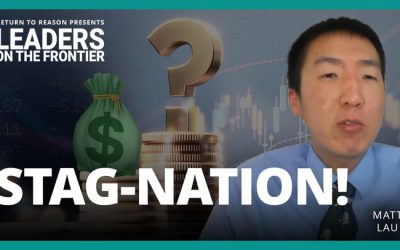Rhetoric is one thing; reality is another. As is becoming increasingly clear, the OECD’s July 1 proposal for a 15 per cent global minimum for corporate taxation is nothing of the sort.
Although the awaited initiative slated for 2023 will not and cannot achieve a level playing field—the guise put forward by its proponents is set to achieve less sought-after outcomes. Broadly speaking, these fall under the banner of jurisdictional cartelization, as described by Franco Terrazzano of the Canadian Taxpayers Federation. That means (1) reduced jurisdictional choice and competition, (2) higher tax burdens and (3) more political patronage.
Since they empower those in office, who can dole out favors, the loopholes, exemptions and discriminatory taxation to favor politically influential entities will remain. As reported by City AM, the City of London—the United Kingdom’s financial epicenter, a seat of historic wealth and power, is already set to be exempt from any global tax rules. The agreement at a recent OECD meeting will be “a boon for the Square Mile’s largest banks.”
When captains of industry get frustrated with competitive markets and power in the hands of the consumer, they are naturally drawn towards mergers or informal cartelization. This allows them to raise prices and worry less about quality. This problem is precisely why there is antitrust law and why low or no barriers to entry are crucial to warding off market power and rent seeking.
Let us not be deceived; governments can engage in precisely the same price-fixing collusion. They already hold monopolies over specific regions or jurisdictions. However, so long as there is an escape, be that for individuals or businesses, there is at least a modicum of accountability. When central banks, for example, offer currencies that plunge in value—à la Venezuela—people are likely to shift to an alternative, often the U.S. dollar. People can also physically move across provincial or international borders for better services and lower taxes.
The proposed global tax agreement, which already has 132 governments including Ottawa backing it, is an attempt to close that escape route. If all governments agree to cooperate in a cartel, they need not cater to individuals or businesses and can more easily pursue their own interests: expanding state power and collecting ever-higher portions of economic activity in taxes, right up to outright property confiscation.
If you do not like the way your government is treating you and do not believe you are getting value for money, where are you going to go? You will be trapped and even if you flee to the few rogue holdout nations you will be subject to all manner of blacklisting, akin to what Panamanians already face.
Their nation has historically offered a cost-effective safe haven and privacy for financial activities. This has helped the nation develop and rise beyond her neighbors, exemplified by the Panama City skyline and the enviable canal.
However, other nations have not appreciated the competition and have ostracized the Central American commercial hub. Dozens of banks have succumbed to the de facto economic sanctions and departed. Transactions to and from Panama are now more expensive and you can expect the same treatment for other nations that do not participate in the global-taxation cartel.
The most notable of those nations with a spine are Estonia and Ireland. The former has been a role model of economic openness since escaping the Soviet Union and the latter has attracted investment from far and wide and earned the Celtic Tiger moniker. Hungary is one of a few others voicing opposition since she has a nine per cent corporate rate. “Nobody has the right to intervene from abroad in Hungary’s tax policies,” says Hungary’s foreign affairs minister.
U.S. Treasury Secretary Janet Yellen has derisively called tax competition a “30-year race to the bottom on corporate tax rates,” referring to the post-Soviet era. This so-called race to the bottom is a race to offer better deals for companies and their stakeholders, including owners, employees and customers.
As documented by Daniel Bunn of the Tax Foundation, the plain tax-minimum packaging disguises a convoluted agreement that includes many onerous elements—“a major blow to tax competition.” Even though the United States has a 21 per cent corporate tax rate, for example, she is set to lose tax revenues on account of redistributive impacts.
Dan Palmon of Rutgers Business School writes that stated corporate rates are illusory, so compliance with any uniform rate will be at the discretion of those doing the enforcement. Each jurisdiction has different tax-code definitions and vast gaps between statutory and effective rates.
With complexity also comes compliance costs, as tax accountants are well aware. Bunn explains that the OECD plan, if implemented, will “increase the tax costs of cross-border investment and impact [read: distort] business decisions on where to hire and invest around the world—including in domestic operations.”
The OECD’s proposal reinforces the dictum that we ought not judge a book by its cover. Tax cartelization is a win for governments and a loss for constituents. It is setting a dangerous precedent and now the IMF is jumping on the bandwagon with a proposed international carbon tax. The IMF’s hypocrisy, paying zero income taxes itself, is typical of those pushing for higher taxes on everyone else.
Fergus Hodgson is a research associate at the Frontier Centre for Public Policy.
Photo by Ben White on Unsplash.



